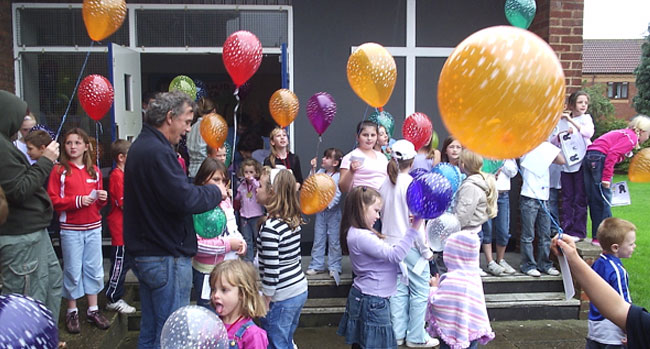The Maximum Life Youth project or ‘Max Life’ for short was formed in January 2004. Under my leadership and a group of people who wanted to make a difference to the lives of local children, young people and their families.
Kingston Wesley Methodist Church is located on Holderness Road in East Hull. East Hull is an area of mixed social and economic conditions. There are areas of severe deprivation and also some affluence.
During the inception stage of the project we had successfully started various activities and groups at Kingston Wesley, starting from scratch developing some helpful activities for children and young people. For example a holiday club, a few family fun days and after school clubs.
We were fortunate to have several uniformed groups using the building on a weekly basis. These included Rainbows, Brownies, Guides and Boys Brigade. The strategy was to engage with these groups on a regular basis. We encouraged these groups and their leaders to be part of the monthly family parade service.
There was also a sizable cohort of young people hanging around the Kingston Wesley Methodist Church Building because there was not any thing suitable for them to do.
We carried out a research project through these groups and the local schools to make sure we met real needs. Three things in particular were highlighted Music, Drama and IT.
With the fruit of all these things I had pioneered and a dedicated team of local people we decided to explore setting up a dedicated charity for this work to develop further. This was the inception of Max Life.
The original group of trustees met with me and we planned the development of the Maximum Life Youth project.
We formed a charity and converted a disused flat at Kingston Wesley into a suite of offices. We created our own polices and procedures and our own insurance cover.
Our slogan was “Helping children, young people and their families to reach their full potential”.
Our mission statement: “The Maximum Life Youth Project exists to help children, young people and their families to grow mentally, physically, emotionally, socially, economically and spiritually and so empowering them to reach their full potential”.
Our Values: creativity, inclusivity, family, friends, honesty, integrity, respect and caring.
In order to fund the project we were successfully with several funding applications to local and national charitable trusts for a full time youth development worker and a part time administrator. Our initial funders for these posts were, Children In Need, The Church Urban Fund and Tudor Trust. We also held family fun days and other exciting fund rasing events.
We later added a part time children’s worker to the staff and other sessional workers, as we needed them.
So with a good building, a willing group of volunteers, a professional team of trustees, dedicated staff and me as the project manager we were up and running.
As time went on the profile of activities developed to include holiday clubs, fun days and after school clubs and also workshops including a living history project with the local secondary school. Drawing together people who had served in the forces during the Second World War to tell their stories to a group of young people chosen by the school.
Our focus was on music and technology. Therefore with funding from Awards for All, we transformed two disused rooms at Kingston Wesley into a professional recording studio.
Other workshops included developing skills in drumming, guitar playing, creative writing, puppetry, dance, photography, photo editing and design workshop, journalism, ICT, and image editing in addition to the range of regular weekly activity clubs.
The sustainability of the project was through a robust financial business plan and clear goals and objectives that were in line with our mission, vision and values.
The robust financial plan included a mixed economy of income from charitable trusts, personal giving, fund raising events, major donors and regular income through the recording studio, café and bookings for conferences at Kingston Wesley by outside organisations.
The holistic nature of the project with professional governance ensured the project became sustainable.
